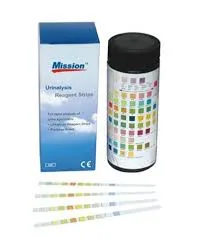Aug . 13, 2024 16:31 Back to list
How to Purchase a Reliable Typhoid Testing Kit for Home Use and Safety
Understanding the Importance of Buying a Typhoid Kit Test
Typhoid fever remains a significant public health issue in many parts of the world, especially in developing countries where sanitation practices may be insufficient, and access to clean drinking water is limited. The disease is caused by the bacterium Salmonella typhi, which can lead to serious complications if not diagnosed and treated promptly. This article will explore the necessity of buying a typhoid kit test, focusing on its importance, how it works, and the benefits it offers to individuals and communities.
What is a Typhoid Kit Test?
A typhoid kit test is a diagnostic tool used to detect the presence of Salmonella typhi in a patient’s blood, urine, or stool. These kits often come with easy-to-follow instructions and all necessary materials to conduct the test, making it accessible to both medical professionals and individuals. They typically include components such as reagents, test strips, and, in some cases, detailed instructions for interpreting the results.
Why is it Important?
The importance of buying a typhoid kit test cannot be overstated. Early detection of typhoid fever can significantly reduce the risk of complications and even save lives. Symptoms of typhoid fever can mimic other illnesses, leading to misdiagnosis and improper treatment. By utilizing a dedicated test kit, individuals can obtain reliable results quickly.
In regions where access to healthcare facilities may be limited, having the ability to conduct a test at home or in a community setup is crucial. This can facilitate immediate symptom management and enhance overall public health responses to outbreaks.
How Does the Test Work?
Typhoid kits typically operate based on immunological reactions. When a sample—such as blood or urine—is introduced, the reagents in the kit will react with any Salmonella typhi antibodies present. The result is usually displayed as a color change on the test strip, indicating the presence or absence of the bacteria in the sample. Some advanced kits may offer more precise measurements, allowing healthcare providers to assess the severity of the infection.
buy typhoid kit test

Benefits of Using a Typhoid Kit Test
1. Convenience The primary benefit of a typhoid kit test is convenience. Individuals can perform the test in the comfort of their homes and receive results within a short timeframe. This is particularly important during an outbreak when individuals may want to quickly ascertain their health status.
2. Cost-effective Professional medical tests can often be expensive and may not be easily accessible. Typhoid test kits provide a more affordable option for individuals, particularly in low-income regions.
3. Empowerment By having access to these test kits, individuals are empowered to take charge of their health. This proactive approach can lead to better public health outcomes as more people seek treatment early.
4. Community Health Monitoring When communities have access to these tests, it enhances overall public health surveillance. Community health workers can distribute these kits, monitor infections, and respond more effectively to outbreaks.
5. Educational Tool The use of these kits can also serve as an educational tool, raising awareness about typhoid fever, its symptoms, and the importance of hygiene and sanitation practices.
Conclusion
Purchasing a typhoid kit test represents a significant step toward improving health outcomes in communities at risk for typhoid fever. By offering a convenient, cost-effective, and efficient way to diagnose this potentially deadly disease, these kits empower individuals and bolster public health efforts. As the battle against typhoid fever continues, embracing innovative diagnostic tools is essential for achieving better health outcomes and preventing outbreaks. Whether for personal use or community health initiatives, investing in a typhoid test kit can make a crucial difference in the fight against this enduring illness.
-
Dengue NS1 Rapid Diagnostic Test Kit
NewsMar.07,2025
-
Dengue NS1 Rapid Diagnostic Test Kit
NewsMar.07,2025
-
Dengue NS1 Rapid Diagnostic Test Kit
NewsMar.07,2025
-
Transferrin Rapid Test Cassette Tumor Marker TF Card
NewsMar.07,2025
-
Malaria Pf Pan Rapid Diagnostic Test Kit
NewsMar.07,2025
-
malaria pf / pan ag rapid test
NewsMar.07,2025

